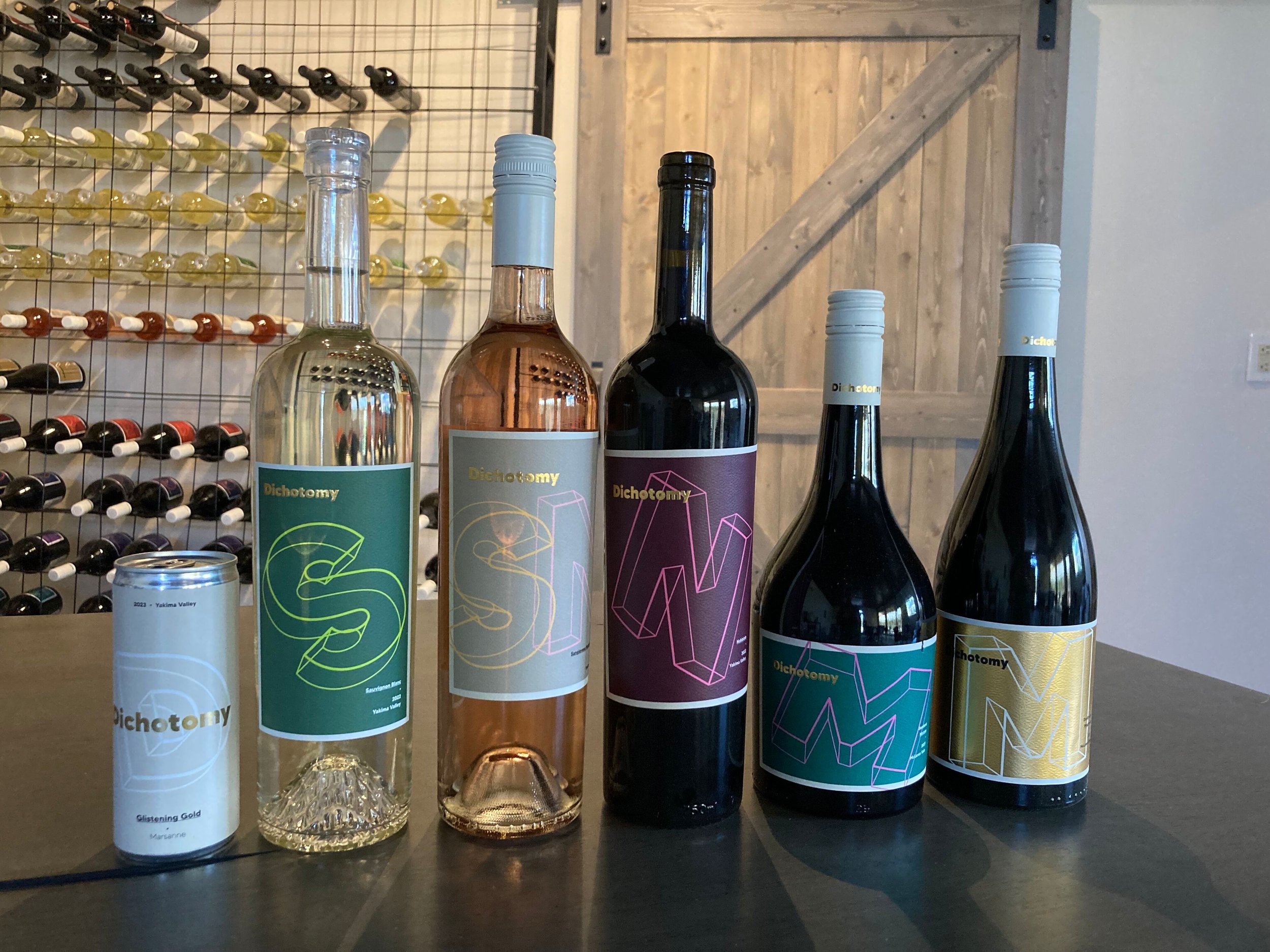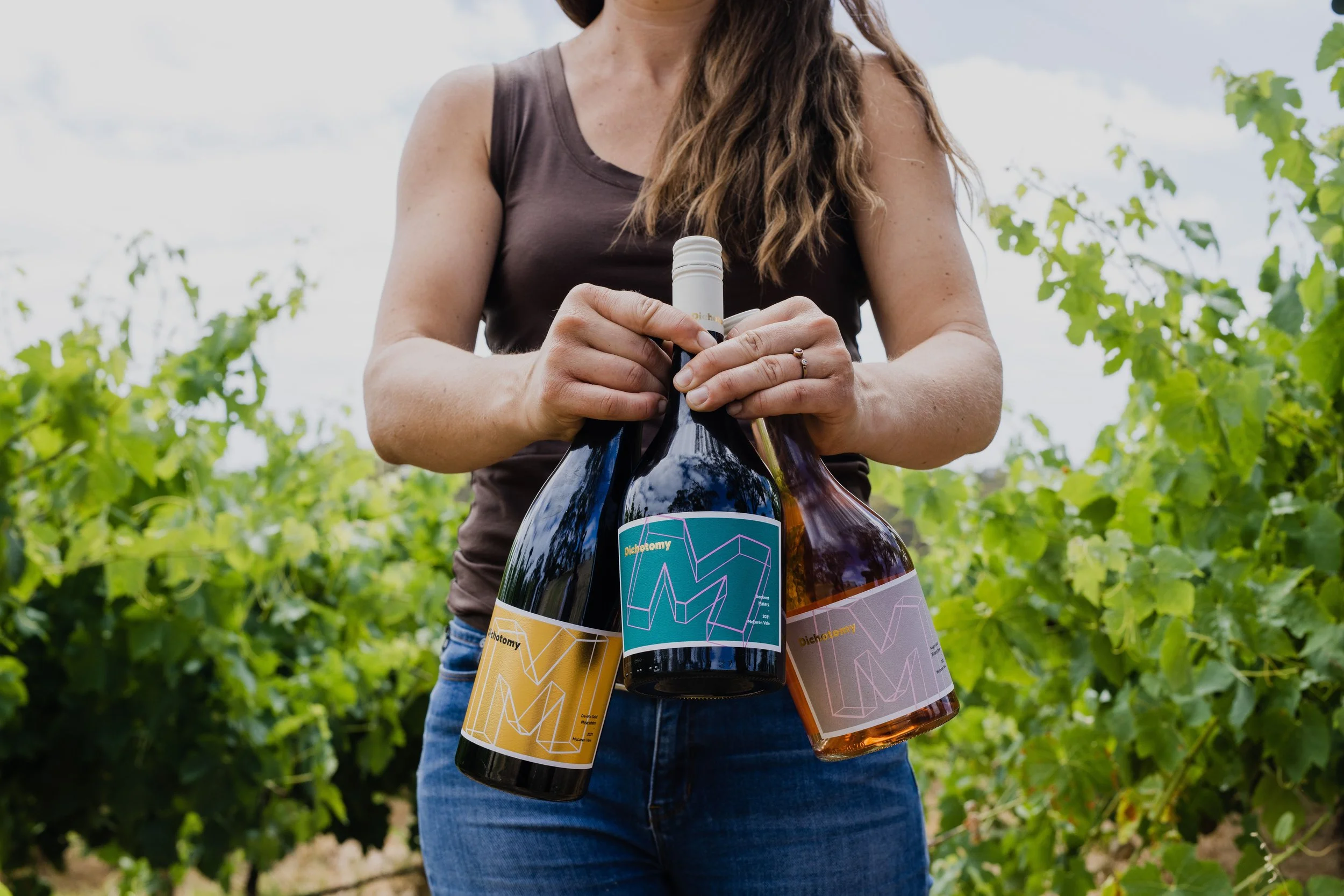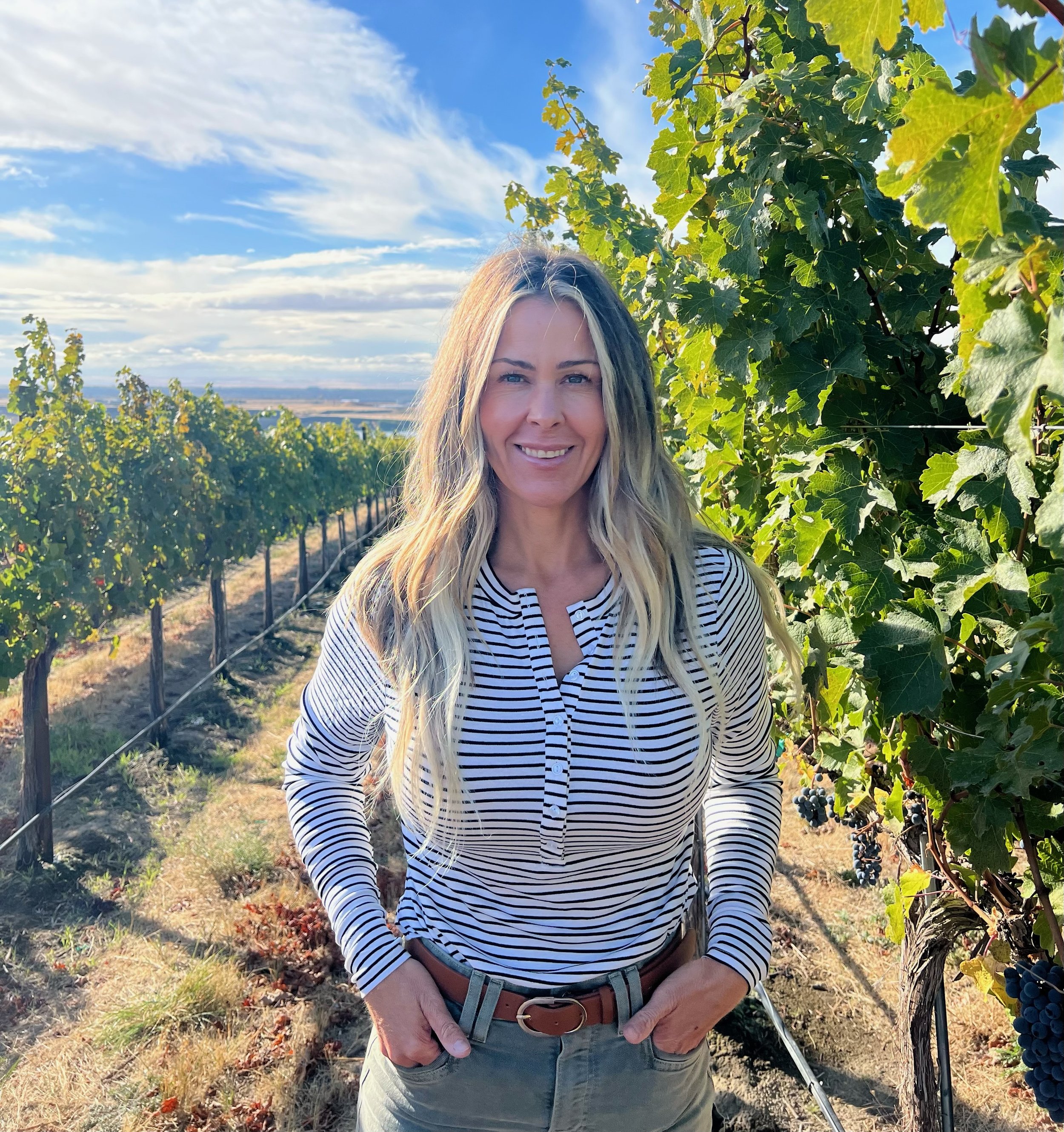Shane Howard of Pondera Winery
Shane Howard and his wife were on a trip to Italy, when a bottle of Barolo converted him from a spirits to a wine lover. Upon returning to the Seattle area, they tasted wines in Woodinville and became hooked on wine. Shane gave up his careers in picture framing and golf, and went to the nearest library to check out books on winemaking. He also talked to local winemakers, who were very generous with their knowledge. He made his first wine in 2003, received licensing for Pondera Winery in 2005, and started selling wine commercially in 2008. He and four other family members own the winery, which now offers both a spacious tasting room and an impressive art gallery. The Whimsical Animal Art by Will Bullas is particularly amusing, with titles such as “Crabernet”, “Shut the Duck Up”, and “Significant Otters”. And, don’t miss the book of poetic verse about the winemaking process, illustrated by Shane’s uncle, also a winery owner.
There is a wine for every palate at Pondera, but Bordeaux wine lovers will be particularly pleased, as Bordeaux style red wines have been Shane’s focus. He admits, however, that Rhone style wines just might be his favorite to produce these days, so visitors will find plenty to choose from of both styles of wine. Shane sources grapes from vineyards across several AVAs, with the bulk coming from Stillwater Creek Vineyard in the Royal Slope AVA. His best-selling wine most years is the single-varietal Cabernet Franc from Dineen Vineyard in the Rattlesnake Hills AVA. In addition to award-winning wines and amazing art, Pondera is also known for its fun, creative events. For example, every Halloween the winery holds a Hallo-wine event revolving around a Jackalope. Shane makes a special wine for the event, complete with artist label displaying a Mighty Jackalope, and many guests come dressed in Western garb.
Listen to the Interview:



















































































































































































